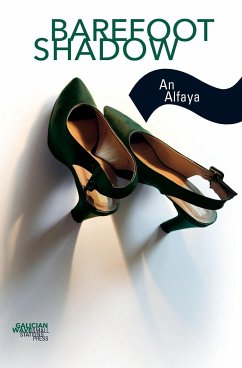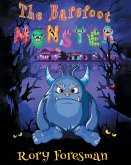The 'barefoot shadow' in this story is Elsa's great-aunt, Sagrario, who always goes about the house with a geisha's shuffling gait, eating after everybody else has eaten and without wearing shoes. A sense of guilt hangs around the figure of her great-aunt, which intrigues Elsa, but which none of the other members of the family - her grandparents, Xuliano and Amadora (Sagrario's sister), her parents, Fernando and Esperanza, and her aunt, Florinda - seem prepared to talk about. But Elsa has a young person's keen eyes, she can see that there are secrets shared by Sagrario and Aunt Florinda, and when Sagrario dies and turns up in the coffin wearing a pair of pretty high heels, she is determined to get to the bottom of this mystery, even if it means disturbing the family peace and poking about in Sagrario's room. The Spanish Civil War between the Nationalist soldiers of General Franco and the defenders of the Second Spanish Republic has left an indelible mark on the country - the war is over, as is the plague of hunger and disease that went with it, but the memories do not die so easily. Elsa's family was Republican, but her mother's family was Nationalist (another shadow that hangs over the family) and her aunt is married to someone she doesn't love - the owner of the local wood factory, Bieito Nogueira. Far too many secrets for Elsa's inquisitive mind to accept, especially as she is about to turn sixteen and life, an unencumbered life if at all possible, is waiting for her. An Alfaya studied teacher training and criminology. She helped found the Avento Theatre in Vigo. She is the author of numerous works of adult and young adult fiction and the recipient of several prestigious literary awards. Her novel Barefoot Shadow won both the Lazarillo Award for Literary Creation and the Xosé Neira Vilas Prize for short novels. It was included in the White Ravens Catalogue and the IBBY Honour List, international indicators of quality.
Bitte wählen Sie Ihr Anliegen aus.
Rechnungen
Retourenschein anfordern
Bestellstatus
Storno








